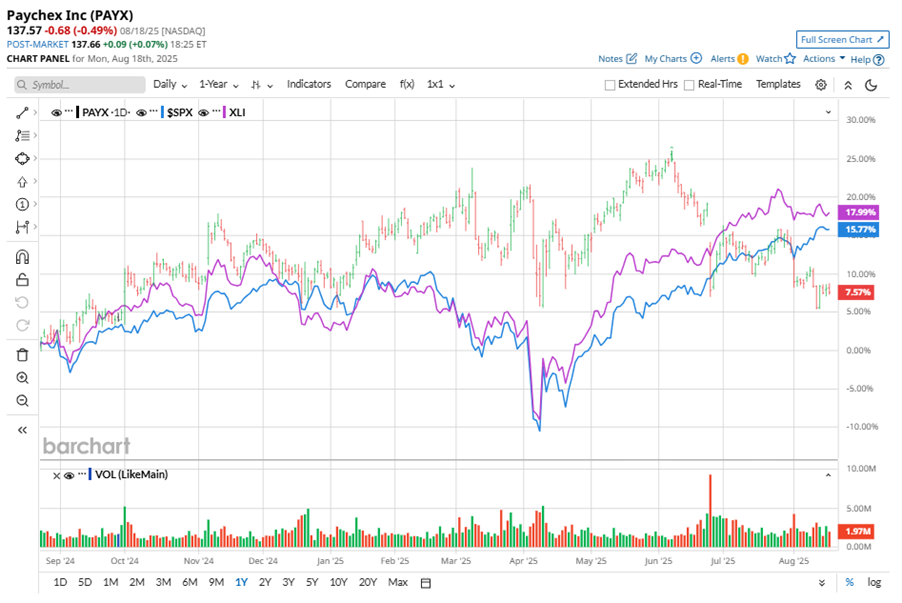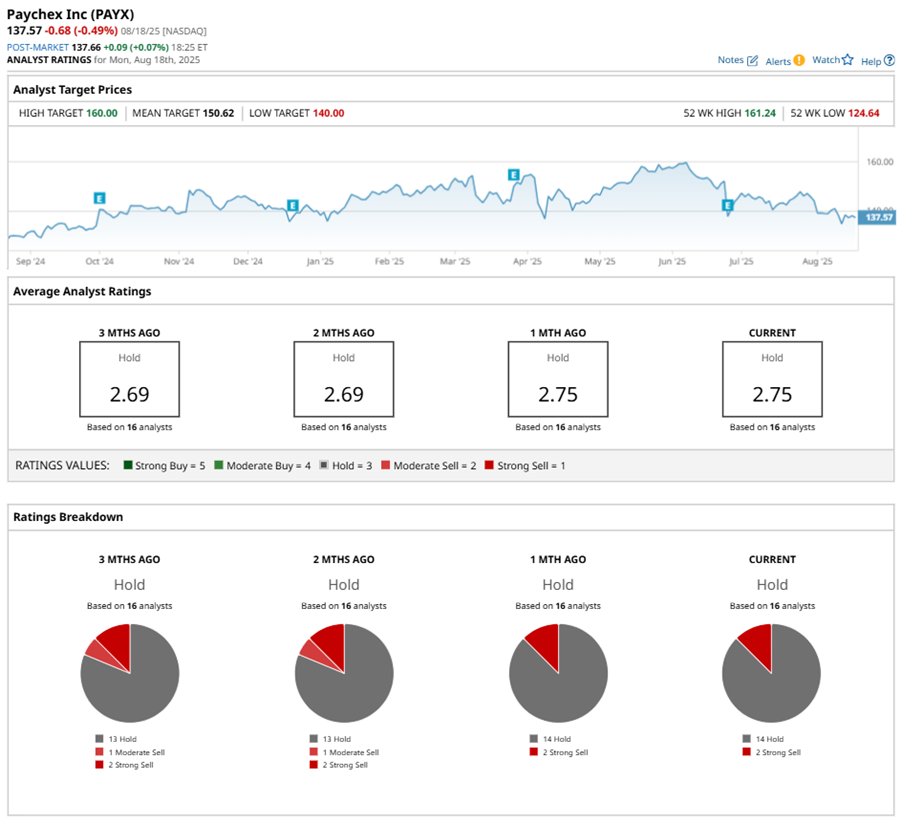
Paychex, Inc. (PAYX), headquartered in Rochester, New York, offers integrated human capital management solutions (HCM) that encompass payroll, benefits, human resources (HR), and insurance services for small to medium-sized businesses. With a market cap of $49.8 billion, the company's services range from calculating payroll and filing tax payments to administering retirement plans and workers' compensation.
Shares of this industry-leading HCM company have underperformed the broader market over the past year. PAYX has gained 9.9% over this time frame, while the broader S&P 500 Index ($SPX) has rallied nearly 16.1%. In 2025, PAYX stock is down 1.9%, compared to the SPX’s 9.7% rise on a YTD basis.
Narrowing the focus, PAYX’s underperformance is also apparent compared to the Industrial Select Sector SPDR Fund (XLI). The exchange-traded fund has gained about 19% over the past year. Moreover, the ETF’s 14.6% returns on a YTD basis outshine PAYX’s low single-digit losses over the same time frame.

On Jun. 25, PAYX shares closed down more than 9% after reporting its Q4 results. Its adjusted EPS of $1.19 surpassed Wall Street expectations of $1.18. The company’s revenue was $1.43 billion, exceeding Wall Street forecasts of $1.41 billion.
For fiscal 2026, ending in May 2026, analysts expect PAYX’s EPS to grow 9.6% to $5.46 on a diluted basis. The company’s earnings surprise history is impressive. It beat the consensus estimate in each of the last four quarters.
Among the 16 analysts covering PAYX stock, the consensus is a “Hold.” That’s based on 14 “Hold” ratings, and two “Strong Sells.”

This configuration is slightly more bullish than two months ago, with one analyst suggesting a “Moderate Sell.”
On Aug. 13, JPMorgan Chase & Co. (JPM) analyst Tien Tsin Huang maintained a “Sell” rating on PAYX and set a price target of $153, implying a potential upside of 11.2% from current levels.
The mean price target of $150.62 represents a 9.5% premium to PAYX’s current price levels. The Street-high price target of $160 suggests an upside potential of 16.3%.
On the date of publication, Neha Panjwani did not have (either directly or indirectly) positions in any of the securities mentioned in this article. All information and data in this article is solely for informational purposes. For more information please view the Barchart Disclosure Policy here.






